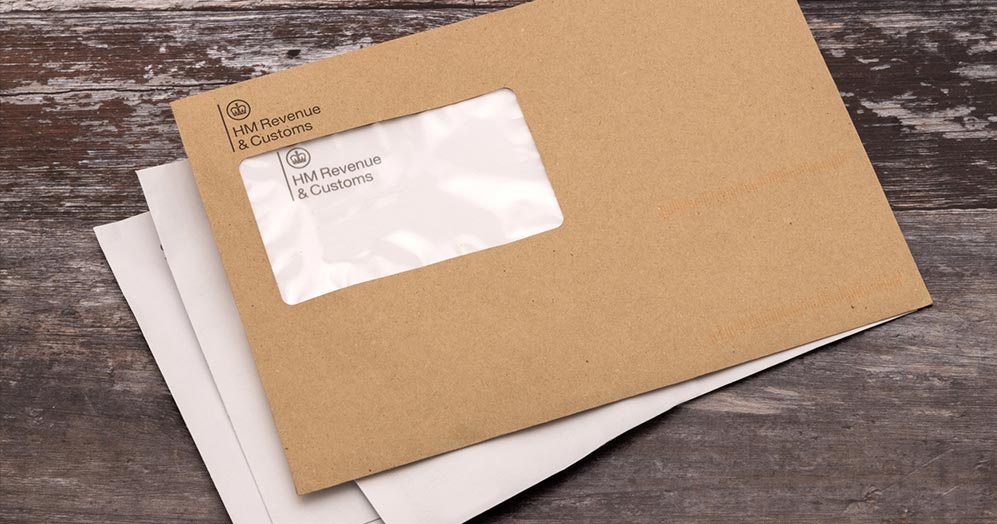People are rarely pleased to get a letter from HMRC. When the dreaded brown envelope lands on the doormat, your first instinct might be to ignore it and hope for the best.
This is understandable, but not advisable.
Whatever the letter is about, ignoring it is likely to make things worse. The sooner you know about a possible discrepancy with your account, the sooner you can put it right.
In this blog, we’ll try our best to make opening that envelope a little less scary.
Is the letter genuine?
An unfortunate side effect of the pandemic was a steep rise in HMRC-related scams. Fake emails increased by 87%, and scam phone calls almost doubled, according to the National Cyber Security Centre.
Postal scams are less common, but they do still happen. Fraudsters are becoming ever more sophisticated, so be on the lookout for red flags. These include:
- references to an urgent payment or calls to act immediately
- warnings of severe punishments for late payments or failure to comply with instructions
- requests for bank details or other personal information.
If a letter seems suspicious, it’s best to contact HMRC directly. Be sure to do this using a phone number or email address from the Government website, rather than one found in the letter itself.
Alternatively, if you are a client, you can bring the letter to us and we’ll check its authenticity.
What are the most common HMRC letters?
Most HMRC correspondence is fairly innocuous. Common letters include:
- your annual tax summary, including the amount you’ve paid and the tax code that was applied.
- a P60 from your employer or pension provider outlining what you’ve been paid in the last 12 months, and how much has been taken in tax.
- a reminder to complete an online self-assessment, if HMRC thinks this may be necessary.
- a P800 telling you that you have overpaid and are entitled to a refund.
These letters are nothing to worry about, but they do contain important information.
Read them carefully and contact HMRC if anything looks wrong. Even if everything is fine, it may be a good idea to keep hold of them for a while for future reference.
What if there is a problem with my taxes?
In some cases, HMRC will write to tell you that you’ve underpaid your taxes. This can be nerve-racking, but there’s no need to panic. Underpayments are usually the result of an honest mistake, and HMRC knows this. If you receive a letter of this kind, stay calm and contact HMRC as soon as possible.
Try to speak to someone on the phone rather than sending an email. This will make it easier to explain your situation.
When talking to HMRC, it’s important to be honest about your finances. If you can’t afford to pay everything at once, HMRC can help you to set up a payment plan.
If you’re worried about calling HMRC yourself, you can always come to us for help.
What happens if HMRC opens an inquiry?
An inquiry is one of the more serious actions that HMRC can take. In the unlikely event that you receive notification of an inquiry, it’s important to protect yourself:
- make sure that HMRC is entitled to open an inquiry. This usually has to be done within a year of filing your tax return.
- keep records of every interaction with HMRC, including the dates and times of all phone calls.
- use recorded delivery for all correspondence with HMRC.
An inquiry is a tough challenge to face alone, so it pays to work with an experienced accountant.
They will have an in-depth understanding of the inquiry process, and can offer advice on everything from sending the correct documents to working out a timetable for payments.
It’s unlikely that you’ll ever face an inquiry, but an accountant can also help with less serious matters. If you’ve received a letter from HMRC and are unsure what to do next, don’t hesitate to get in touch.
We’d be happy to go through the letter with you and advise you on the best course of action. Give us a call today to get started.

